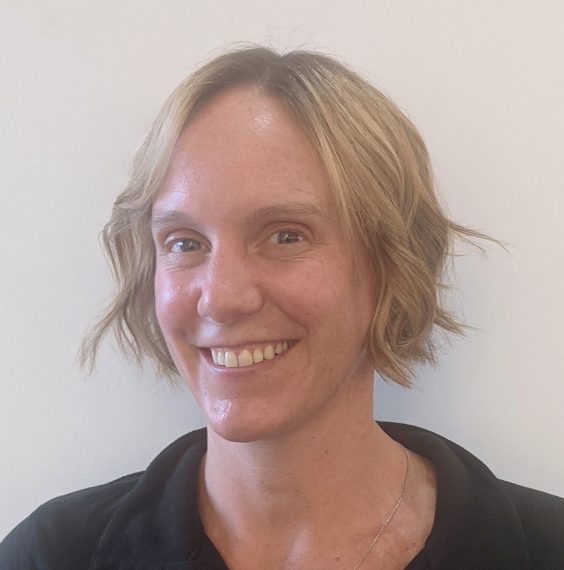For most healthy people, the immune system helps protect the body from infection and cancer cells. But for people with autoimmune diseases, their immune systems attack their bodies, causing a huge range of symptoms.
First in the province
To help people with autoimmune neuromuscular disorders, a team at St. Paul’s Hospital has launched the St. Paul’s Immunotherapy in Neurology (SPIN) Centre.
A first in BC, the centre aims to unify the treatment of inflammatory disorders of the muscle, nerve and brain.
“With the SPIN Centre, we can bring a coordinated approach to caring for people with auto-immune neuromuscular diseases. We can review all treatments and work with our patients to respond to what matters most to them, like issues of fatigue and quality of life, in addition to neurologic symptoms of weakness or loss of feeling,” says Dr. Kristine Chapman, head of the Division of Neurology at Providence Health Care.

When the immune system attacks
Autoimmune neuromuscular diseases are caused by an overactive immune system that attacks the muscles or nerves. These diseases are rare but can be debilitating. Symptoms include numbness in limbs and burning sensations in the nerves. Many patients develop muscle weakness that leaves them unable to climb stairs, participate in sports or even walk. In more severe case, the muscle weakness affects the throat and the person has difficulty breathing or swallowing.
“About 20 years ago, I went to my family doctor because I had numbness in my right hand. They referred me to several specialists. I ended up seeing a neurologist at Vancouver General Hospital,” says Art Maxwell, a retired high school teacher from Nelson, BC. “She diagnosed multifocal motor sensory neuropathy. Since then, I’ve been on a treatment program to mitigate the symptoms of the disease. I also work out several times a week to maintain as much muscle strength as I can.”
Even with those efforts, Maxwell struggles with the use of his hands. “I can’t really use my right hand anymore and I shake a lot. And I don’t have any sense of touch or grip pressure. I never know if I’m going to break something or drop it when I pick it up.”
Like many people with these types of neuromuscular disorders, Maxwell receives intravenous immunoglobulin therapy (IVIg) to mitigate his symptoms. Immunoglobulins are a blood product that carry antibodies to fight germs or disease as well as modulate the immune system.

“For people with neuromuscular diseases, IVIg smooths out the immune system and stops it from overreacting,” says Dr. Katie Beadon, a neurologist with the SPIN Centre. “This is different than people with immunodeficiencies who also receive IVIg. In those cases, the immunoglobulin helps bolster their body’s own immune response.”
Putting treatment in the hands of patients
To date, British Columbians with autoimmune neuromuscular diseases who need IVIg treatment have to travel to hospital for treatment every few weeks. The infusion of the immunoglobulin can take four to eight hours, meaning a day off work and, depending on where the patient lives, travel to a hospital that offersthe treatment. Through the SPIN Centre, Chapman and Beadon are looking to change that.
“Many immunodeficient patients have been managing their own immunoglobulin treatments at home with subcutaneous (under the skin) injections instead of intravenous injections. In BC, a lack of infrastructure to transition and monitor patients in the community has led to uneven access to this treatment option for people with autoimmune neuromuscular diseases,” notes Beadon.
Maxwell has been receiving IVIg therapy since 2006. Every few weeks, he would visit the Nelson Hospital for his infusion. Since retirement, he and his wife have been spending the winter in Arizona. For Maxwell, that meant a flight to Vancouver every three weeks so he could have his infusions. When he found out he was a candidate for subcutaneous injections, he was thrilled.
No need for travel
“My son and wife travelled to Kelowna to learn how to give me the injections. Now, I get a treatment once a week in the comfort of my own home. My family hook me up to the pump and my medication drips in 3 to 4 hours. No more flying to Vancouver every few weeks,” he says.
Centring treatment around patients’ needs
The SPIN Centre is about more than just transferring patients to at-home treatment. The Centre’s philosophy is grounded in what matters to patients and is an example of value-based health care, or health care that focuses on outcomes that matter to patients.
“While we want to transition as many patients as possible to home-based subcutaneous treatment, it isn’t an option for everyone,” says Dr. Chapman. “No matter how our patients receive their immunoglobulin, we work with them to understand what matters to them and design a treatment program, including lifestyle, drug and immunoglobulin therapy to help them achieve those goals. This approach allows us to track improvements or get early flags if something is going off track.”
Support to patients in their own communities
The SPIN Centre model creates more equity in access to care. Rather than patients being seen by individual neurologists, clinic staff — including nurses, neurologists and rheumatologists — coordinate care, bringing in subspecialists as needed. Clinic staff support physicians in patient’s home communities, offering consults and virtual patient visits.
“Our vision is for the SPIN Centre to be the model for a provincial immunotherapy program, based at St. Paul’s Hospital,” says Chapman “That would allow for economies of scale, better access to care and improved patient outcomes.”
The Department of Medicine Innovation Platform, which supports health care transformation and new ideas at Providence Health Care, was instrumental in the development of the SPIN Centre.





